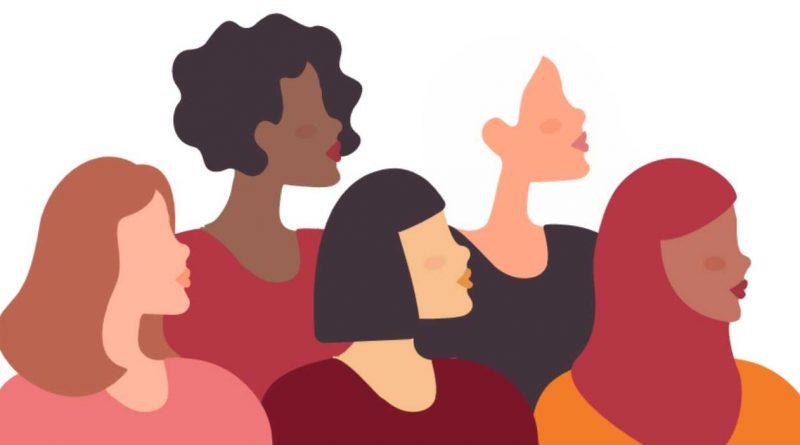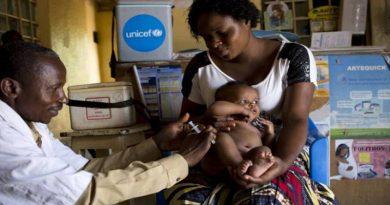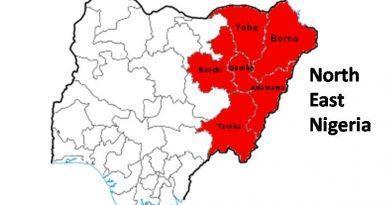Nigerian health workers learn how to help women facing gender-based violence
Like many health workers across the Sahel, Mairama Baba Yadafa has been witnessing first-hand the multiple impacts of an unprecedented humanitarian crisis that has gripped the region: drought has hunger soaring amid deepening deprivation and suffering by millions of people affected by armed violence.
While the world raises alarm after alarm on the unrelenting challenges and tragedies, health workers like Yadafa struggle with a deeper impact that has little voice due to taboos, humiliation, fear, and just plain helplessness that keep women and girls silent.
“Women and girls are frequently subjected to domestic violence and other harmful acts that invade their physical and emotional integrity,” she says. “As a frontline worker, I sometimes got overwhelmed seeing and hearing them go through that ordeal.”
Yadafa is a midwife at the Lokuwa primary health care/clinic in Nigeria’s north-eastern Adamawa State. When confronted with women and girls who remained quiet about the signs of trouble that Yadafa could clearly see, Yadafa also felt helpless.
“In the past, I often had to leave them to their fate as I wouldn’t know what to do,” she says.
But Yadafa is one of 27 female and 23 male health workers from civil society organizations in her north-eastern Nigeria community included in a Sahel-wide training of health care workers to respond to gender-based violence.
The training is part of the World Health Organization’s (WHO) emergency response to the humanitarian crisis. Along with responding to the spread or threats of diseases, high malnutrition, food insecurity and difficult access to basic services including health across the six countries of the Sahel region, WHO recognizes the threat of gender-based violence to the physical and mental well-being of women and girls, along with the lack of options for most of them.
Gender-based violence includes domestic violence, abuse, trafficking, exploitation and forced marriage, typically perpetrated on women and girls.
“When first-line responders are properly trained to help victims of gender-based violence, they are continuously making a difference,” says Dr Richard Lako, WHO Emergency Manager for north-eastern Nigeria.
Dr Lako explains that because women are likely to come into contact with health providers, especially during their reproductive years, they are likely to trust the health care workers enough to disclose whatever violence they are experiencing. Otherwise, they may tell no one, or at least no one who can help.
And because reporting violence can have repercussions for women who are experiencing it, health care providers need guidance on how to provide help carefully and confidentially. They need to know what steps to take and what to consider when someone seeks their help for domestic violence, says Dr Lako.
The training, he explains, starts with the need for confidentiality. It includes how to engage with communities to let them know that gender-based violence is unacceptable, and a crime, but there is help available. It involves knowing when and where to make referrals confidentially for people experiencing violence to get the services they need.
WHO is piloting the gender-based violence training for health workers in Nigeria before making it available in the six countries of the Sahel region. So far, 385 200 health workers have participated in the Nigerian training.
The training in Nigeria enabled health care workers to provide 3895 women and girls experiencing gender-based violence with first-line support between April and June 2022, compared with 765 people in the first three months of the year. Of them, 1967 women and girls were referred to another health care facility for further care. And more than 47 400 women and girls were reached with information about gender-based violence, its consequences, and the role of health care workers when seeking help.
The violence and insecurity in the Sahel region are exacerbating the vulnerability of women and girls. But due to the taboos about airing private family matters or fear of retribution from the perpetrator, many women and girls keep silent about the violence they experience. Even when women and girls come forward, data on such incidence, especially in the Sahel region that is experiencing the massive displacement of communities and populations, extreme food insecurity, and increased levels of poverty, is not well maintained.
Designing information management and safe data collection systems is also part of the health care provider training.
Dr Celine Laori, Director of Public Health of Adamawa State, sees the training as filling an urgent and huge gap. “With this newly acquired knowledge, health care workers can now address the gaps and ensure that quality care responses on gender-based violence are provided,” she says.
Yadafa, who used to feel helpless around women she knew were experiencing violence now feels she is of greater service. “The gender-based violence training has given me the knowledge necessary to provide professional care for survivors in a confidential setting, and I am sure they will now receive timely and appropriate support at our health facility.”




